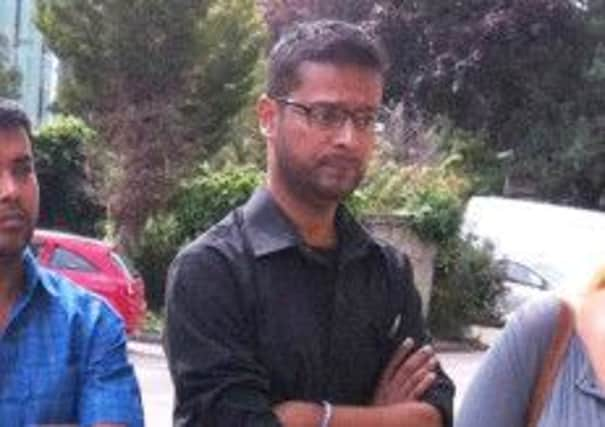Doctor ‘careless’ in prescribing drugs struck off


Prashen Pillay had previously admitted prescribing an overdose of digoxin to 77-year-old Joan Dixon, of High Street, Findon, at St Richard’s Hospital, in Chichester, in 2010.
He wrote 250 milligrams instead of 250 micrograms – an overdose of 1,000 times the required dosage.
Advertisement
Hide AdAdvertisement
Hide AdAlthough the error was later corrected, Mrs Dixon was still given a dosage of ten times the required amount by a staff nurse and later died, following a cardiac arrest.
Reacting to the Medical Practitioners Tribunal Service panel’s decision to strike his name from the medical register, Mrs Dixon’s daughter, Carolyn, said: “At the inquest I felt Dr Pillay was a very warm young man who was deeply shocked by what happened and seemed very genuinely to have cared about mum.”
An expert doctor told Mr Pillay’s hearing the mistake fell ‘seriously below the standard’ expected of a junior doctor.
The panel heard once the mistake was realised, it was not communicated to a consultant or the cardiac arrest team.
Advertisement
Hide AdAdvertisement
Hide AdIt also heard of a second incident, in which Dr Pillay prescribed an ‘incorrect, excessive and potentially dangerous’ level of Novo-rapid insulin to a diabetic patient (B) in September and October 2010.
It concluded: “The panel was of the view that Dr Pillay’s carelessness and lack of awareness when writing and prescribing put patients A (Mrs Dixon) and B at unwarranted risk as his errors played a part in each patient being administered an overdose of potentially harmful drugs.”
Following the death of Mrs Dixon, he was excluded from Western Sussex Hospitals NHS Trust and the General Medical Council placed him under an interim suspension order in 2012.
After he left the trust, Dr Pillay was arrested several times for a range of offences.
Advertisement
Hide AdAdvertisement
Hide AdAmong other incidents, he was fined for urinating on the shop floor of Morrisons in Sutton and being drunk and disorderly at a Premier Inn in Stockton.
In March, 2014, he attended St George’s Hospital, in Tooting, and falsely told anaesthetists he was undertaking an attachment at the hospital.
In April, he attempted to treat a patient who had collapsed in London and told police he was an anaesthetist and a paramedic and he was an A&E doctor in Derby.
Mrs Dixon’s daughter Carolyn added: “I am very surprised if he has gone on and done things that are perhaps less professional.
Advertisement
Hide AdAdvertisement
Hide Ad“He seemed like a concerned young man who was probably a bit out of his depth.”
The hospital apologised for the ‘terrible, one-off accident’ at an inquest into Mrs Dixon’s death in 2012 and Dr Pillay personally apologised to her family.
The panel added: “The panel is of the view that Dr Pillay has shown a wilful disregard for the principles set out in Good Medical Practice.
“The facts found proved in this case amounted to numerous and widespread departures from several of the principles set out in GMP.”
The coroner recorded a narrative verdict relating to Mrs Dixon’s death, with Digoxin toxicity recorded as the cause, following her cardiac arrest.